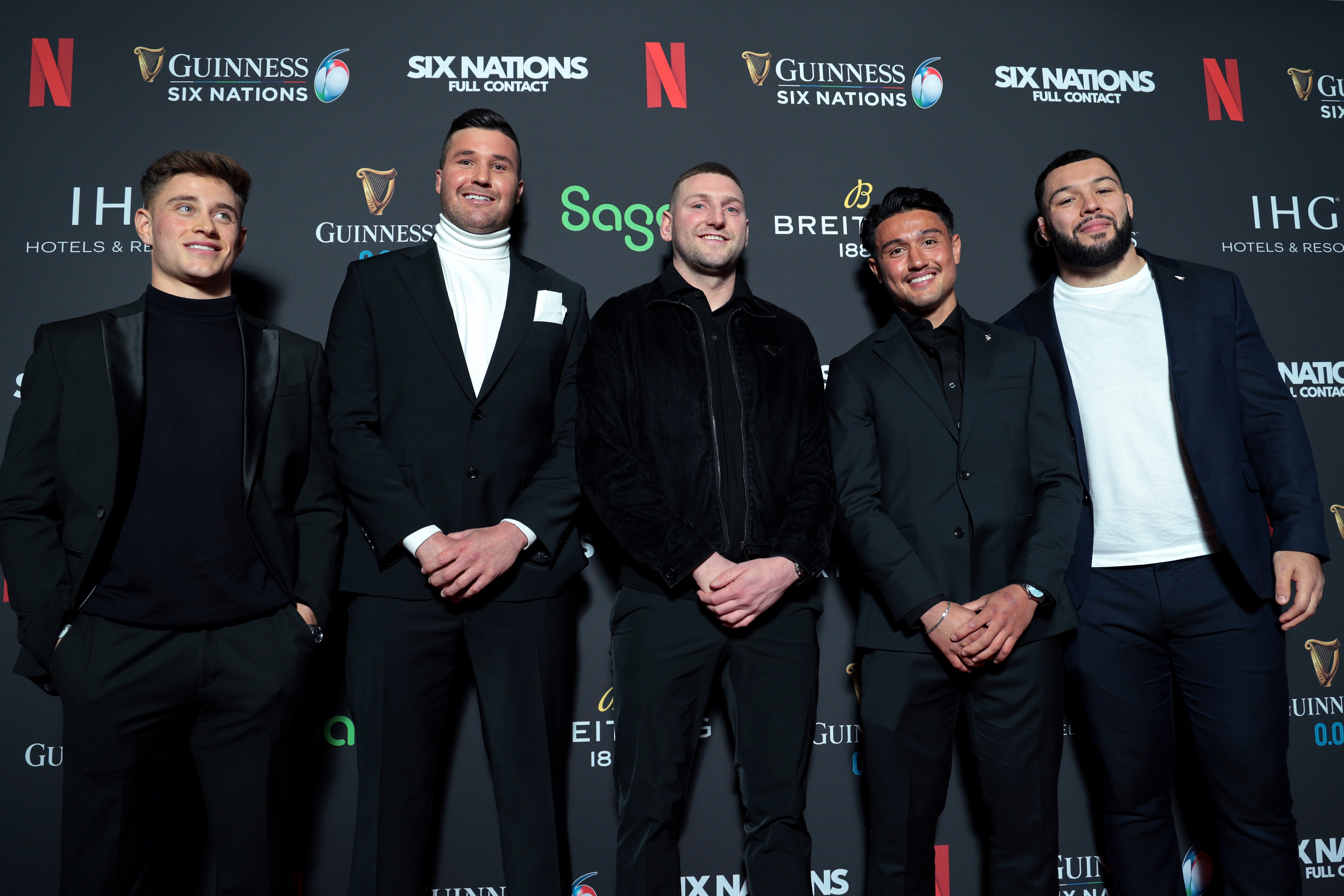Netflix’s latest stale sports docuseries fails to give rugby the cut-through it craves
‘Six Nations: Full Contact’ provides an underwhelming, out-of-date look at a sport that has moved on from the year-old events it chronicles as the ‘Drive to Survive’ magic remains stubbornly impossible to recapture

Your support helps us to tell the story
From reproductive rights to climate change to Big Tech, The Independent is on the ground when the story is developing. Whether it's investigating the financials of Elon Musk's pro-Trump PAC or producing our latest documentary, 'The A Word', which shines a light on the American women fighting for reproductive rights, we know how important it is to parse out the facts from the messaging.
At such a critical moment in US history, we need reporters on the ground. Your donation allows us to keep sending journalists to speak to both sides of the story.
The Independent is trusted by Americans across the entire political spectrum. And unlike many other quality news outlets, we choose not to lock Americans out of our reporting and analysis with paywalls. We believe quality journalism should be available to everyone, paid for by those who can afford it.
Your support makes all the difference.There is a scene from I’m Alan Partridge that seems to neatly sum up Netflix’s approach to sporting documentaries. The eponymous broadcaster is trying to convince Tony Hayers, his commissioning editor at the BBC, of the merits of a variety of hare-brained ideas, starting with a police procedural to “put Norwich on the map”.
“Shoestring, Taggart, Spender, Bergerac, Morse,” Partridge begins. “What does that say to you about regional detective series?”
“There’s too many of them?”, Hayers asks.
Partridge: “That’s one way of looking at it, another way of looking at it is: people like them, let’s make some more of them.”
Box to Box Films would appear to agree with Partridge when it comes to the stylised, sanitised sporting shows that have become their niche. Six Nations: Full Contact, which follows the 2023 edition of “rugby’s greatest championship” is the latest venture from the prolific production firm, who, having caught lightning in a bottle with Drive to Survive in 2019, have since tried to replicate the formula in tennis and golf, largely without success.
Their dive into rugby feels similarly stale. Where Drive to Survive became a phenomenon, turbocharging a sport chasing past glories by adding grit and gristle to the glitz and glamour of Formula 1, subsequent attempts have failed to create the same cultural cut-through.

It does not help that rugby has definitively moved on since the events chronicled. Where Formula 1 moves from season to season, allowing each edition of Drive to Survive to set up the next, the narrow scope of this documentary makes it old news. References to preparing for a World Cup now firmly in the rearview mirror are anachronistic; those tuning in hoping to see Wales’ featured stars Louis Rees-Zammit or Dan Biggar in this year’s Six Nations having enjoyed their Netflix contributions will find themselves disappointed.
F1’s guarded intricacies and irregularities played perfectly for a peek behind the curtain, and rugby had hoped that letting the cameras in might open up the sport to a new audience. But tensions with teams paid a relative pittance for their participation restricted the scope of the documentary such that there is little in this series that has not already been explored elsewhere.
There have been plenty of rugby documentaries over the past few years offering broadly the same beats, while most national sides produce their own, sanitised in-house shows when they are in camp. Without unlimited, warts-and-all access, which Full Contact generally lacks, even scenes from inside the inner sanctum fall short of providing insight.

For an edition of the championship laden with storylines, the series comes across as strangely undramatic, too. Like in the recent series of Break Point, anything resembling a controversy is merely glossed over: there is no mention of the allegations of a toxic culture within Welsh rugby that so dominated the opening weeks of last year’s Six Nations; nor, most concerningly in a series that seeks to highlight the “bone-on-bone” brutality of the sport, is much attention paid to the head injury crisis that lurks in the background.
This is perhaps understandable given Full Contact’s desire to attract new fans – presenting rugby’s full, flawed picture may make more engaging content but could turn people away. But if the goal is to expand the watching pool, elements of the show feel oddly pitched. The Six Nations endures, primarily, on the length of its history and the ferocity of its national rivalry – these elements are seldom explored.
The effort made to cultivate new stars is laudable, but it can sometimes feel forced in such a team sport. For a total newbie, the failure to explain basic concepts must make the on-field action difficult to engage with, while the splicing together of different bits of match footage and dubbed-in commentary jars.

There are good bits here. The shine given to Italy and France is welcome for a primarily Anglophone production, while the stories of Andrew Porter, Ellis Genge, Seb Negri and Gael Fickou are a reminder that rugby is a broader church than sometimes portrayed. In time, perhaps teams will grow comfortable with the cameras, allowing the documentary to show more tactical titbits and revealing moments.
But, for now, it all feels a little bit underwhelming. Cameras have already been filming in camp this year, suggesting that Full Contact will, at the very least, get a second series – let us hope it is more compelling.
Join our commenting forum
Join thought-provoking conversations, follow other Independent readers and see their replies
Comments